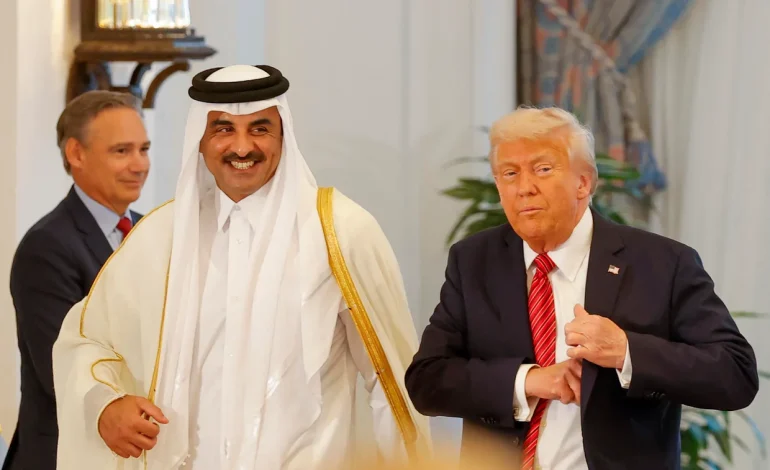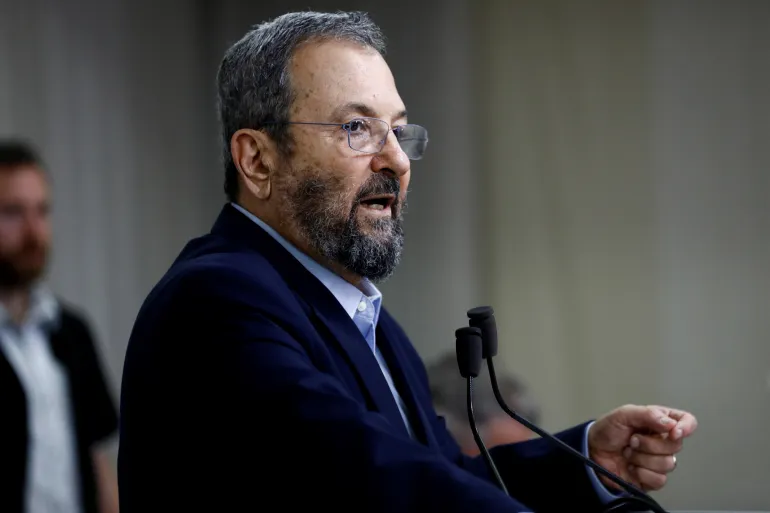Trump’s new order: An attack on Qatar is a threat to the US

President Trump signed an executive order declaring that any armed strike on Qatar will be treated as “a threat to the peace and security of the United States,” pledging Washington could respond with diplomatic, economic, and — if needed — military measures.
The order, dated Monday, Sept. 29, effectively extends a NATO-style promise to a non-treaty partner. It’s unilateral (an executive order, not a Senate-ratified defense pact), but it’s still a striking security guarantee for a small Gulf state that hosts the US military’s largest Middle East hub, Al Udeid Air Base.
A Qatari official confirmed the move follows Israel’s Sept. 9 strike in Doha aimed at Hamas figures long based there. The attack, which Israel said targeted Hamas leadership, jolted the relationship and sparked questions about Qatar’s protection — even as it mediates cease-fire talks over Gaza.
During Prime Minister Benjamin Netanyahu’s Washington visit this week, the White House said he apologized to Qatar for the incident, acknowledging a violation of Qatari sovereignty and promising not to repeat it.
What the order says
- The US will regard any armed attack on Qatar’s territory, sovereignty, or critical infrastructure as a threat to US peace and security.
- Washington “shall take all lawful and appropriate measures — diplomatic, economic and, if necessary, military — to defend the interests of the United States and of the State of Qatar and to restore peace and stability.”
That language mirrors the spirit (if not the legal force) of NATO’s Article 5. Qatar isn’t a NATO member, but it is a Major Non-NATO Ally — a status granted under President Biden — and already a close US security partner.
The timing underscores how the Gaza war is reshaping regional alignments. Qatar has been central to US mediation efforts and hosts thousands of US personnel. Granting a public security guarantee signals to allies and adversaries alike — Israel and Iran included — that Doha’s airspace and soil are now a red line for Washington.
It’s also unusual. Presidents typically seek Senate-backed treaties for mutual defense commitments. By using an executive order, Trump gave himself flexibility (and future presidents an easy off-ramp), while still sending a powerful deterrent message.
The subtext
- Deterrence: A warning shot after the Doha strike; a reminder that attacks inside Qatar risk a US response.
- Reassurance: Calms Qatari fears and stabilizes a critical logistics and mediation hub.
- Leverage: Signals to Jerusalem that cross-border pursuits of Hamas can carry diplomatic costs when they spill into partner territory.
This is a big symbolic umbrella over a tiny but strategically vital ally — less binding than a treaty, more forceful than a private assurance — and it raises the stakes for anyone contemplating another strike on Doha.
With input from CBS News, CNN, Al Jazeera, Axios, Politico, and the Hill.









The latest news in your social feeds
Subscribe to our social media platforms to stay tuned